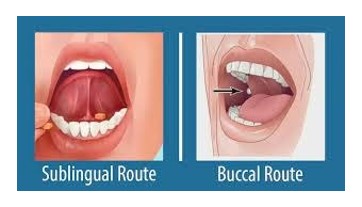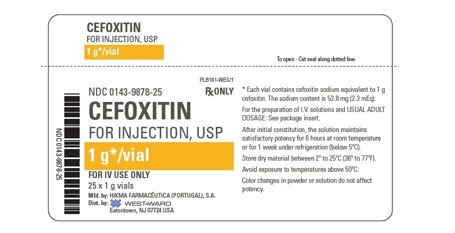Why are sublingual and buccal medications rapidly absorbed?
They are metabolized in the liver.
Their action is located in the mouth.
These drugs pass directly into systemic circulation.
Blood flow is diminished in these sites.
The Correct Answer is C
Sublingual and buccal medications are rapidly absorbed because they are placed under the tongue or between the cheek and gum, where they dissolve and are absorbed directly into the bloodstream through the mucous membranes in the mouth. This allows for rapid absorption and bypasses the liver’s first-pass metabolism.

Nursing Test Bank
Naxlex Comprehensive Predictor Exams
Related Questions
Correct Answer is C
Explanation
Cefoxitin is a cephalosporin antibiotic and can cause allergic reactions in people who are allergic to penicillin or other beta-lactam antibiotics like amoxicillin. Therefore, a severe allergy to amoxicillin is a contraindication for the client to receive cefoxitin, and the nurse should report this finding to the provider immediately.
A recent history of diarrhea for three days is not a contraindication for cefoxitin administration. However, the nurse should monitor the client for signs of diarrhea and report any worsening symptoms to the provider.
A serum creatinine level of 0.8 mg/dL is within the normal range and is not a contraindication for cefoxitin administration.
A history of phlebitis following an IV infusion of 0.9% sodium chloride with 10 mEq potassium chloride is not a contraindication for cefoxitin administration. However, the nurse should assess the client's veins carefully before administering the medication and choose a different site or route for administration if necessary.

Correct Answer is D
Explanation
The correct answer is choice d. I need to apply a sunscreen when I go outside.
Choice A rationale:
Taking over-the-counter antihistamines with dantrolene is not recommended because both can cause drowsiness and increase the risk of side effects.
Choice B rationale:
Dantrolene should be taken regularly as prescribed, not just when spasms are bad, to maintain consistent therapeutic levels and effectiveness.
Choice C rationale:
Muscle strength improvement with dantrolene may take longer than 2 to 3 days. It typically requires a few weeks to see significant benefits.
Choice D rationale:
Dantrolene can cause photosensitivity, making the skin more sensitive to sunlight. Therefore, applying sunscreen when going outside is important to prevent sunburn.
Whether you are a student looking to ace your exams or a practicing nurse seeking to enhance your expertise , our nursing education contents will empower you with the confidence and competence to make a difference in the lives of patients and become a respected leader in the healthcare field.
Visit Naxlex, invest in your future and unlock endless possibilities with our unparalleled nursing education contents today
Report Wrong Answer on the Current Question
Do you disagree with the answer? If yes, what is your expected answer? Explain.
Kindly be descriptive with the issue you are facing.
